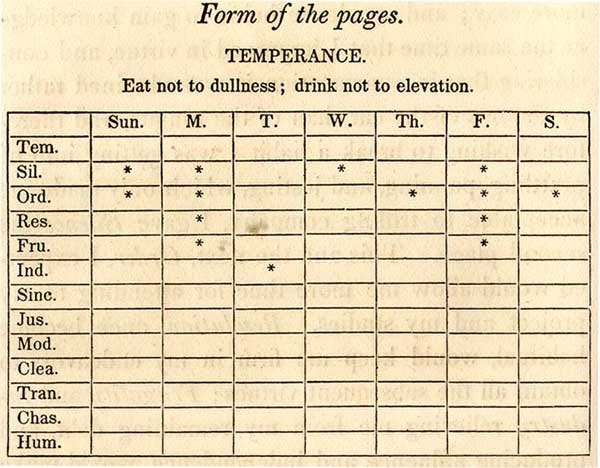Weekly Update (21w30)
Restarting old habits, finally reading Durant, and living in San Francisco
Hello again, or for the first time! Don’t worry, I didn’t take you off the list in the 12th week of 2021… I just stopped writing.
That week, something came up during the time I normally wrote these—Sunday morning—which kept me from getting it out on time. Something did go out, though, as you may remember: a “Weekly Update 21w12” email, which was completely blank. I hadn’t written it, but had forgotten to stop it from sending 🥲
This was mortifying for me! It prevented me from starting back up, too: whenever I thought about writing I recalled this embarrassment, got a mental block, and found something else to distract me. The rewrite of week 12’s update kept getting pushed back… and then it was the next weekend, and how could I write an update when I hadn’t even written the one before it yet?˘,.
This awkwardness and mental avoidance kept compounding, and after 3-4 weeks I simply gave up on the plan of writing weekly updates at all. But now I’m back!
(I’ve also made a minor schedule shift; these updates now cover Monday-Sunday weeks, and are published on Mondays; before, they covered Sunday-Saturday periods, and were published on Sundays.)
I. 7 in a row!
Why am I restarting this? Crystallizing and sharing thoughts is the best way to preserve them, and I’ve been more disciplined about writing and reflecting, so I have more to share again!
What does this discipline look like? Keeping track of it, mainly; my daily habit tracker is back with a vengeance, and I’ve already broken my all-time streak, with 7 perfect days in a row.
Last year, I used a habit tracker as an aspirational guide—if I did all 12 (!) of my “habits” in a day, it was almost guaranteed to be a good one. However, this had a glaring downside: I almost never lived up to my own expectations, which caused the tracker to be an object of resentment. There was no chance in hell I’d be a perfect person every day, so why should I even bother trying at all?
The whole problem recalls to mind Benjamin Franklin’s “Plan for Attaining Moral Perfection,” outlined in the ninth chapter of his Autobiography. After outlining 13 virtues he’d like to have, he famously…
… made a little book, in which I allotted a page for each of the virtues. I rul'd each page with red ink, so as to have seven columns, one for each day of the week, marking each column with a letter for the day. I cross'd these columns with thirteen red lines, marking the beginning of each line with the first letter of one of the virtues, on which line, and in its proper column, I might mark, by a little black spot, every fault I found upon examination to have been committed respecting that virtue upon that day.
This had been the inspiration for my ill-fated system last year, but I missed out on a crucial part of Franklin’s plan: to develop these virtues a few at a time, only expanding his focus once he had mastered those at hand. My key error was to plunge in, trying to develop 12 habits simultaneously.
So, this time, I’m taking it slower. Starting with 5 core habits (reading, writing, sleeping, reflecting, and programming), I plan to expand the list gradually as I demonstrate mastery of each current set. Hopefully, this will give rise to more sustainable and enduring habits.
II. Starting the Durants’ “The Story of Civilization”
What have I been reading? Check THIS out!
Last weekend, while wandering around looking at bookstores, Mattea & I found an amazing copy of Will (& later Ariel) Durant’s 11-volume masterpiece “The Story of Civilization.” We’ve heard a lot about this series before—it’s an attempt to chronicle all of history that apparently didn’t fail too badly—and always wanted to read it together, so here’s our chance!
For just over a week now, we’ve been reading one chapter per day (there are 31 in the first volume, so it should take about a year). My initial reaction has been shock and awe; his mastery of English rivals that of Robert Caro, making stories float off the page and even mundane descriptions of everyday life in Ancient Egypt sing. Further, Durant’s words show an unrivaled epistemic humility (“History is mostly guessing; the rest is prejudice,” etc) which enables his limited conclusions to age with total grace; again and again, I’m shocked that the prescient words I’m reading were written in the 1930s. If the quality keeps up for the series’ astounding duration—which I have full reason to expect—this year will truly bless me.
Ironically, mastery of English is not Durant’s only similarity to Caro—they both failed miserably at predicting the longevity of their lifelong projects. In the introduction to the first volume, written in the late 1930s, he explains how this will be a simple four-book series. I laughed, looking across the room to the other 10 volumes, and couldn’t help but think of how similar the latter would sound half a century later, dedicating “part 1 of 3” of his still-ongoing five-volume Lyndon Johnson biography.
Here are two choice selections from the first 8 chapters (which I must emphasize were very hard to narrow down):
Part of the function of parentage is the transmission of a moral code. For the child is more animal than human; it has humanity thrust upon it day by day as it receives the moral and mental heritage of the race. Biologically it is badly equipped for civilization, since its instincts provide only for traditional and basic situations, and include impulses more adapted to the jungle than the town. Every vice was once a virtue, necessary in the struggle for existence; it became a vice only when it survived the conditions that made it indispensable; a vice, therefore, is not an advanced form of behavior, but usually an atavistic throwback to ancient and superseded ways. It is one purpose of a moral code to adjust the unchanged—or slowly changing—impulses of human nature to the changing needs and circumstances of social life.
Sumerian civilization may be summed up in this contrast between crude pottery and consummate jewelry; it was a synthesis of rough beginnings and occasional but brilliant mastery. Here, within the limits of our present knowledge, are the first states and empires, the first irrigation, the first use of gold and silver as standards of value, the first business contracts, the first credit system, the first code of law, the first extensive development of writing, the first stories of the Creation and the Flood, the first libraries and schools, the first literature and poetry, the first cosmetics and jewelry, the first sculpture and bas-relief, the first palaces and temples, the first ornamental metal and decorative themes, the first arch, column, vault, and dome. It was a life differentiated and subtle, abundant and complex. Already the natural inequality of man was producing a new degree of comfort and luxury for the strong, and a new routine of hard and disciplined labor for the rest. The theme was struck on which history would strum its myriad variations.
III. We’re in San Francisco until the end of August!
Speaking of civilization, I’m in the thick of it right now! Because I haven’t been writing, most of you probably don’t know that I’m in San Francisco for the summer, now leading a community house in the mold of this winter’s in Utah.
There are so many memories from the last two months I wish I had recorded, but I’ll cut the baggage and start afresh: this week, Mattea and I spent our weekdays on the 36th floor of the tallest skyscraper around, working out of the Salesforce Tower through our memberships with a co-working office company called WeWork (think Starbucks-meets-library).
It’s certainly trippy to be reading about the origins of civilization while living and working at its current cutting edge; SF is a bit too expensive for our tastes, though, so we’ll probably retreat back to Oregon full-time for the fall.
In the meantime, if you’re here or know cool people nearby that I should meet, please reach out; I’d love to meet up!








Now I want to read that series!
On habits — I made the same mistake you made over and over again until I read Atomic Habits. Clear shared a bunch of tips that made a massive difference for me. Here are a couple of them (in my own, probably butchered, words): 1. Break down the habit into its smallest piece (want to run a 5k? Start by stepping out your day each day with running gear on). You start developing the identity and start the process. 2. Once it no longer feels like you have to exert will-power toward that habit, either increase it in scope (run further) or add a new habit to the mix.
It feels sooo slow at first, but before you know it you’ll have a bunch of really solid habits.